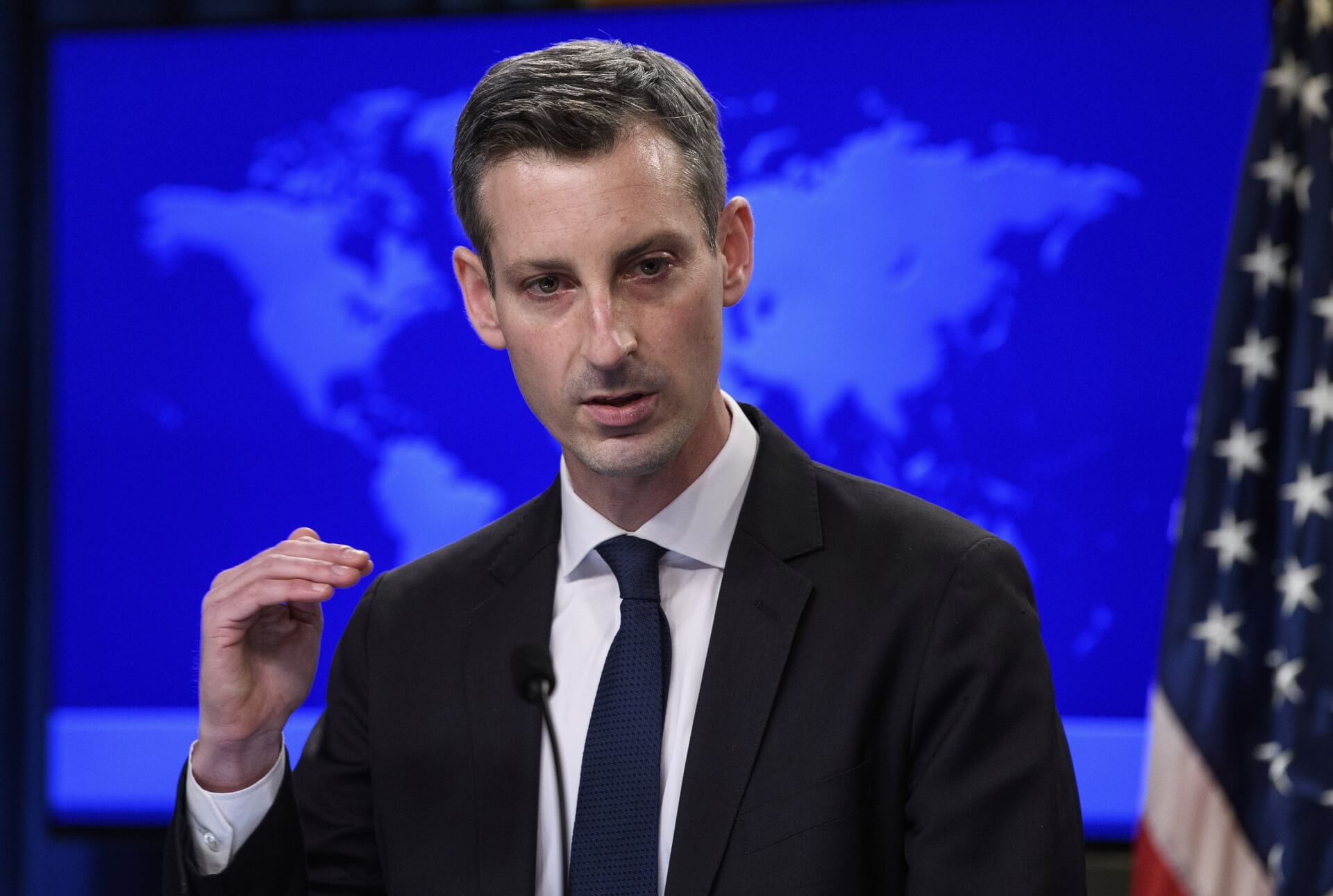United States (US) State Department spokesperson Ned Price echoed the Pakistani military’s denial of Washington being involved in removing former Prime Minister (PM) Imran Khan via a “foreign conspiracy,” reiterating that there is “no truth whatsoever” to Khan’s allegations.
Price asserted that the US always supports the “peaceful upholding of the constitutional and democratic principles” across the world and does not support one political party over the other.
Pakistan has been an important partner on wide-ranging mutual interests for nearly 75 years. We congratulate newly elected Pakistani Prime Minister Shehbaz Sharif and look forward to building on our long-standing cooperation with Pakistan. https://t.co/5ht5boXqaV
— Ned Price (@StateDeptSpox) April 13, 2022
Price remarked that the US “would agree with” Inter-Services Public Relations (ISPR) Director-General Major General Babar Iftikhar, who said during a press conference on Thursday that there was “[no] mention of word conspiracy” in the National Security Committee’s (NSC) statement issued last month. While refraining from publicising the details of the NSC’s discussion, he revealed that the government could decide to declassify the minutes of the meeting.
Regarding Khan’s claim of a “threat letter” from an American official, Iftikhar disclosed that the said document was a “démarche” issued in response to “a statement about interference and undiplomatic language.”
Last Sunday, Khan became the first Pakistani PM to lose a trust vote after the National Assembly (NA) voted against him. In the run-up to the vote, he alleged that he was in possession of a “threat letter” that referred to a no-confidence motion against the PM and claimed that it was received before the opposition leaders had submitted the no-trust motion. During a meeting with his party officials and after weeks of speculation, Khan finally revealed that US Assistant Secretary of State Donald Lu was the foreign official behind the alleged conspiracy, claiming that Lu told the Pakistani ambassador, Asad Majeed Khan, that there would be consequences if Khan was not removed via the trust vote.
In fact, Khan reiterated this claim on Wednesday during a rally in Peshawar, wherein he called on his supporters to “reject” the US-imposed regime of Shehbaz Sharif.
Want to thank all those who came to our jalsa in Peshawar making it a mammoth & historic jalsa. The passion & commitment crowd showed in support of an indep sovereign Pak & their total rejection of US-initiated regime change bringing to power criminals, shows where nation stands.
— Imran Khan (@ImranKhanPTI) April 14, 2022
Meanwhile, while addressing speculations about Chief of Army Staff Qamar Javed Bajwa’s absence from newly-appointed PM Sharif’s oath-taking ceremony, General Iftikhar clarified that the army chief was “unwell.” He also dismissed rumours about Bajwa extending his term. “Let me put this to rest. The chief of army staff is neither seeking an extension nor will he accept an extension. No matter what, he will be retiring on the 29th of November 2022,” he announced.
Earlier on Wednesday, Khan said the newly-installed Sharif government is made up of “robbers” and “thieves” who are incapable of keeping the country’s “nuclear programme safe.” He asked, “The conspiracy under which these people were brought to power, I ask my institutions, is our nuclear programme which is in their hands, can they protect it?”
In reply, Iftikhar clarified on Thursday: “There is no such threat to our nuclear programme and we should not bring it up in our political discussions,” adding that Pakistan’s command and control mechanisms and asset security protocols are “one of the best in international evaluation.” In this regard, he urged the government to stand with the Army and act against any disparaging comments about them out of “mutual respect.” “Constructive criticism is right, but character assassination through fake rumours and propaganda is not acceptable at all,” he stressed.
Iftikhar also rubbished claims about the Army’s growing influence in Pakistani politics, commenting that it remains “apolitical” and has “nothing to do with politics.” Furthermore, he vouched for the independence of democratic institutions—namely the Parliament, Supreme Court, and the Armed Forces—and dismissed reports about meetings between Army representatives and opposition leaders. Iftikhar made it clear that the Army has not threatened to impose martial law at any point during this heightened period of unrest.
He explained that while the institution had not interfered in Khan’s ouster, the now-former PM had sought the Army’s assistance in mitigating the political crisis. He divulged, “The political parties were not ready for talks with each other to end the deadlock at that time… The army chief and the DG ISI visited the PM’s Office at their request to play the role of mediator,” adding, “We have many security challenges and we cannot be involved in any other thing. If we can only handle the security challenges properly, it will be fine.”
Despite Iftikhar’s claims about an “apolitical army,” Pakistan has had a history of military coups overpowering its civilian government. The military has governed the country for over half of its 73 years of independence. Moreover, the army has maintained significant control of the country’s security and foreign policy even after the reinstatement of the civilian government.
In fact, one of the key factors in Khan’s ouster was his disagreement with the Army over the appointment of the ISI spy agency chief. While he had eventually conceded to their demands, it frayed his relations with the institution, which is believed to have played a role in the Army taking a “neutral” stand during the process of the trust vote that ultimately led to his ouster.

